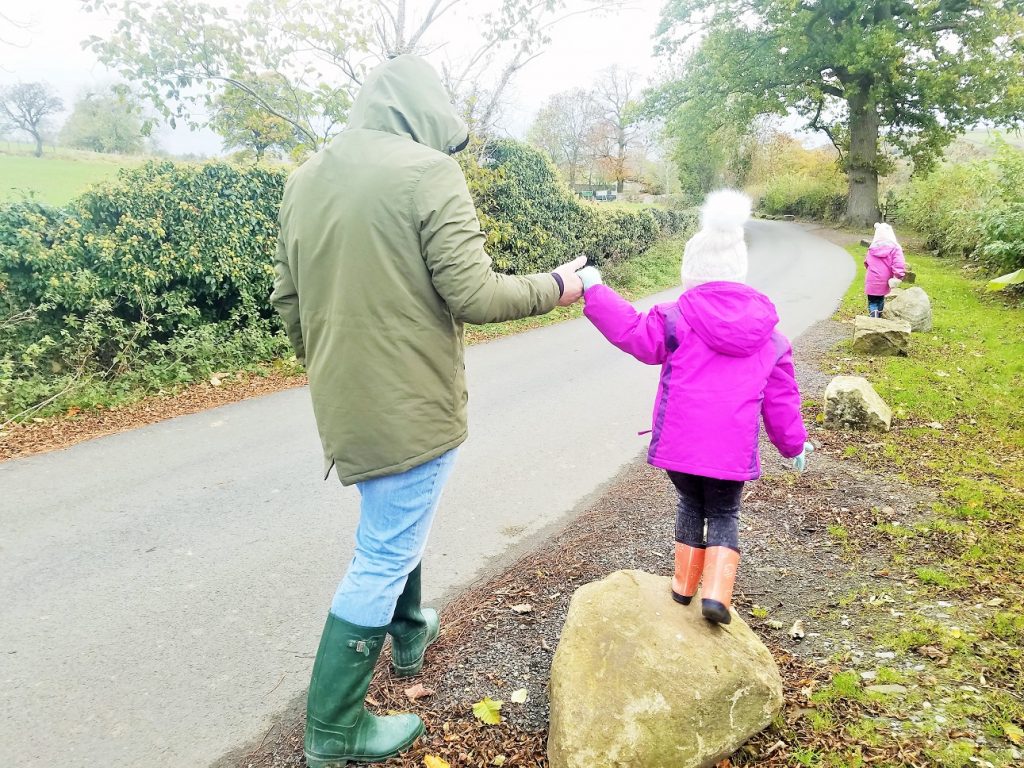
My Problem With Gentle Parenting: Rewards And Praise
I’m going rogue! I may be a gentle parenting blogger, but there’s one aspect of gentle parenting that I just can’t get on board with – the condemnation of rewards and praise.
I love to praise my kids and I believe that encouraging positive behaviour with positive attention is one of the kindest ways to parent.
However, gentle parenting guru, Sarah Hockwell-Smith, has this to say on the matter:
“No behaviour [should be] rewarded… Most praise is seen as shallow and unnecessary.”
– Sarah Hockwell-Smith, How is gentle parenting different to mainstream?
She argues that rewards and praise only create superficial change rather than encouraging children to change their attitude and thinking. And she says that once the reward is gone, the child will revert back to their original behaviour (or worse) because the lack of treats means it’s not worth them behaving anymore.
I can see where she is coming from – if a child is rewarded every time for fastening their shoelaces, and then one day the parent decides NOT to give a reward, the child will probably kick off. They have learnt that fastening their shoelaces earns rewards and praise. They think they deserve the reward.
But does that mean that all rewards and praise should be avoided? Well, no. Not in my opinion.
So let’s have a look at how rewards and praise work, and how we can use them effectively as parents.

How do rewards and praise aid learning?
Rewards can be any form of positive consequence. Here is a very basic example:
- Action: You put a spoon of ice cream in your mouth
- Reward: It tastes nice
- Learned behaviour: If I eat ice cream, I get a nice taste in my mouth, so I’m going to have another spoonful
If the ice cream had no flavour (so there was no reward), you probably wouldn’t bother eating any more of it. But the positive experience encourages you to repeat the behaviour.
So as parents, if we want a child to repeat a certain behaviour, we need to make that behaviour a positive experience for them. For example, we might give a high five when they wash their hands, or buy them a treat when they’ve won a school certificate.

But Sarah Hockwell-Smith is right – psychologist B.F. Skinner found that when rewards are given automatically (i.e. every single time), the behaviour is dropped quickly once the rewards stop.
HOWEVER, he also found that if rewards were sometimes given and sometimes not on a random basis, the learned behaviour would continue for much longer, even after the rewards were no longer given.
Think of it this way – you might not catch something every time you go fishing, but the fact that there’s a chance of reward encourages you to keep going. And at some point you realise that you like going fishing whether you catch anything or not – just the act of going has become the reward.
Similarly, a blogger might have a few posts that fall under the radar, but then they produce one which people really love and relate to. That positive response is the reward and it encourages them to keep going.
This is how behaviour is learnt and habits are formed.

How to use rewards and praise effectively
So armed with this knowledge of human behaviour, how can we make sure we’re using rewards and praise effectively? Well here are 7 tips to help you on your way.
Small
Remember, rewards don’t need to be big, they just need to be positive. You don’t need to take your child out for a slap-up meal every time – just a little comment of praise or making a fuss of their achievement can be enough. Positive attention from someone we love is a precious reward.
Sincere
But of course any compliments must be given sincerely. Kids know when we’re just trying to fob them off or are being half-hearted. Being given rewards and praise as a matter of course is not actually very rewarding – thoughtful, tailored rewards are much more valuable.
Reactive
I’ve spoken before about not being manipulative. It could be argued that holding a child to ransom over a reward is a bit manipulative because you are bribing them. For example, “If you behave at the shops today, I’ll give you some spending money.” – You are controlling them by threatening to take away the money that’s on offer.
But if you react to a situation (rather than pre-empt it), it is much kinder. So don’t let your child know that there’s a reward on offer. If they behave well, you can say, “You’ve behaved so well on this trip – here’s some spending money.” And if they behave badly, they don’t need to know that they lost out on a treat.

Spontaneous
Let your rewards be spontaneous – so rather than always treating them when they’re well-behaved at the shops, try to mix it up a little. Maybe you could reward them because they set the table, or did their homework straight away, or looked after a friend who was upset.
Try not to get stuck in one formula.
Each new situation you reward encourages them to repeat that again in the future on the off-chance that they are rewarded again. And it creates a happy atmosphere where you, as the parent, are constantly looking out for reasons to praise your child and build them up.
Specific
Try to make your praise and rewards specific to the situation, so that the child knows what they’ve done right. So instead of saying, “well done,” try saying, “what beautiful manners” or “I can see you’ve worked really hard on that”.
Progressive
You know your child, and you know what is achievable for them. Maybe expecting them to be well-behaved for a full 2 hour shopping trip is too much to ask. Don’t be afraid to start small – if they managed one shop without kicking off, tell them how proud you are!
This will encourage them to behave like that again in the next shop.
And once they’ve mastered that, set your expectations a little higher so that they continue to grow and develop.
Attitudes as well as behaviours
It’s worth pointing out that we don’t have to just think about praising outcomes. Rewards and praise can be used to encourage hard work, kindness, honesty, etc.
This teaches our children that it’s not about giving the appearance of the doing the right thing (e.g. getting your homework done) but about having the right motivation (i.e. doing your homework to the best of your ability).
Praising attitudes digs down below the surface and helps children develop their moral core. This in turn develops into self-motivation and self-reward (“I feel proud of myself because I worked hard on that”).

I’d love to know what you think about this – do you use rewards in your house? What points do you agree/disagree with in this post? What do you think about Sarah Hockwell-Smith’s theory that rewarding behaviour means you’re stuck rewarding it forever? Throw your two-penneth in by scrolling down and leaving a comment.
PIN it for later:


I agree so much about praising attitude, and approach to doing a task: that’s where the long-term benefits lie! #BlogCrush
I’m pretty hardcore over rewards because I’m worried about them becoming spoilt brats or expecting ‘things’ just for doing stuff they should do, but this post is really useful for using them at the right time. Thanks again Lucy!
I totally believe that simple and sincere appreciation of good behaviour is a good thing. If some children ‘act’ good in the moment for the praise rather than understand why it’s a good behaviour beyond the praise, surely that can be touched on with the child so they understand better xx
Great tips as always. Love the idea of not mentioning a reward but mentioning that the good behaviour earned a reward afterwards. And loving the Abbey pics. #BlogCrush
I love how you dissected this issue. Giving rewards can be tricky. I like how you explained how rewards are tools that can work if used with intention. #BlogCrush
I don’t reward every little thing but a particularly good effort at homework & spellings, good school reports that sort of thing I keep lots of little items bought from the pound shop in a lucky dip for them to choose one. I don’t bribe them to behave while out I think they should do that anyway. #blogcrush
I agree with you and think that you are right. I guess I was a mean parent because I wasn’t into rewards. #BlogCrush
Lots to think about. I am grateful that you blog about gentle parenting as I had not heard of it before I read your blog and have learned from it I hope. I like my children to be praised and rewarded, mainly praised because that’s a great way to say what I like and value and I think by doing that, I have instilled some pretty good values in them despite being pretty useless on other parenting fronts. They know they are loved. They know they are valued for the individuals they are and praise is certainly part of that. Lots to consider in your post – thank you #BlogCrush
I am a massive believer in praise. I have read how lots of parent expert type people do say we over praise our children and they’re going to grow up expecting a round of applause everytime they put their coat on but it just comes naturally to me , as it does adults too actually …maybe I’m just a bit gushy!! However the teens I’ve raised manage to get most things done without too much of a fanfare these days so maybe they’re not too damaged by my over the top “you’re so brilliant” stuff.I like your tip of being spontaneous with rewards and praise too that’s got to work better long term than the same old reponse everytime! #blogcrush
I do believe in praise where praise is due but I also totally agree with the point if a child is always praised for doing something and then they stop getting that, that behaviour will stop. I found this really interesting and have to say I do agree with a lot of the points you raised. I have to admit I do try to bargain with my daughter (she is 12 mow) and it doesn’t always work however I am trying to teach her she can’t have everything she wants just because she wants it not sure it is working right now lol #blogcrush
What a great post, Lucy and one that we parents need to be aware of… There is an entire generation of entitled people out there that had a brass band show up for everything! There are limits and you laid it all out so very nicely. Brilliant! #blogcrush xoxo